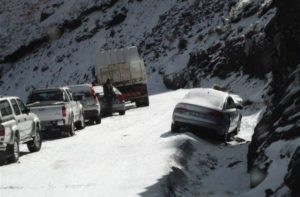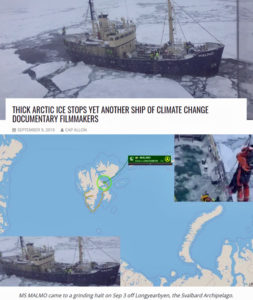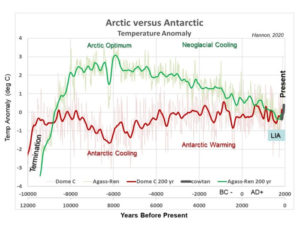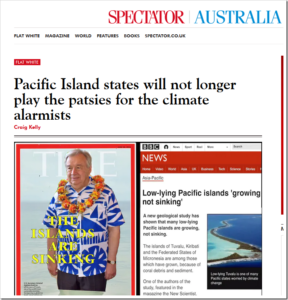by Cap Allon, May 29, 2020 in Electroverse
According to preliminary data from the South African Weather Service, a total of 14 new all-time monthly LOW temperature records were busted yesterday (May 28), versus the 0 for record high.
These record low May temperatures were set ACROSS the southernmost tip of Africa, although the east appears to have been disproportionately hit.
The “II AGR” weather station in Buffelspoort –located NW of Johannesburg– set a new “Lowest Minimum” temperature on Thursday, May 28 of -2C (35.6F) — a reading which comfortably usurped the station’s previous all-time lowest May minimum of 0.9C (33.6F) set back on May 10, 1970.
Secunda –located amidst the coalfields of the Mpumalanga province– was another region to suffer its lowest May temperature on record. The town logged a bone-chilling -3.9C (25F) on Thursday morning, which surpassed the old record of -3.3C (26F) from May 29, 1994.
Exceptional snowfall has been accompanying the low temps.
“We’ve got ground-level snow in quite a few places,” said Richard le Sueur of SnowReportSA while on popular SA radio show CapeTalk on May 27.
“The front swept in from the west and has gone right across the country … We’ve had snow on the Western Cape mountains, the Southwestern Cape and through the Southern Cape and into the Eastern Cape … also, in Lesotho and the Northern Cape … So, pretty much widespread snow,” said le Sueur.
“We’re going to see a chilly winter,” he concluded.
…





